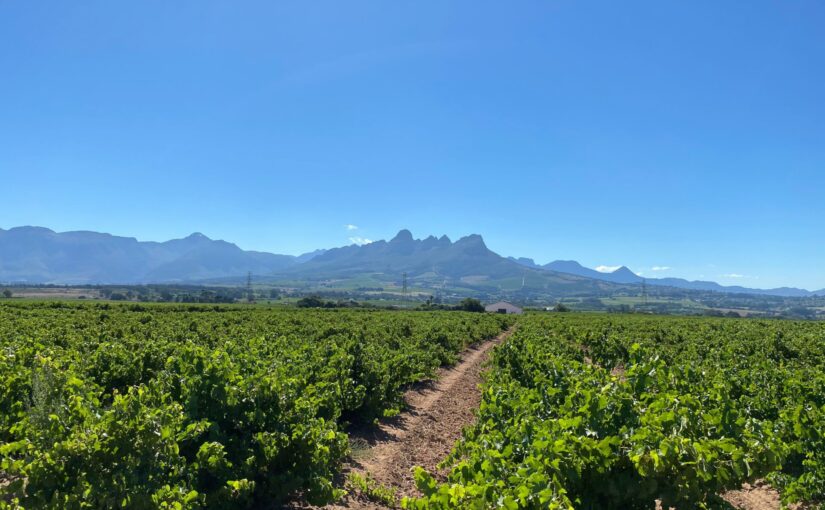Field of study in Wageningen: International Development Studies
Study period exchange: 07/2022 – 12/2022
Country (exchange): South Africa
City (exchange): Stellenbosch
University (exchange): Stellenbosch University
Faculty (exchange): Faculty of Arts and Social Sciences
2. Motivation for exchange
Why did you choose to go on study exchange?
Ever since I was little I was very interested in living abroad, getting away from the Dutch life and experiencing other cultures. As my studies focuses a lot on countries outside the Netherlands, and outside of Europe, this interest only developed more. A study exchange would be the perfect opportunity for me to live abroad for a while.
What is the reason you chose for this country/university?
South Africa is a very divers country with an even more complicated and cruel past (Apartheid), which is still visible in everyday life. The University of Stellenbosch offers a lot of interesting courses to learn more about South Africa’s issues, sometimes in combination with fieldwork, volunteering and community engagement. Following these courses at Stellenbosch University and experiencing such a divers country would be a great extension to my study program and self-development. Besides the academic reason of going to South Africa I was really attracted to its beautiful nature, possibilities for sports (surfing, scuba diving and hiking) and the fact that Cape Town is only a 40 minutes’ drive away from Stellenbosch.
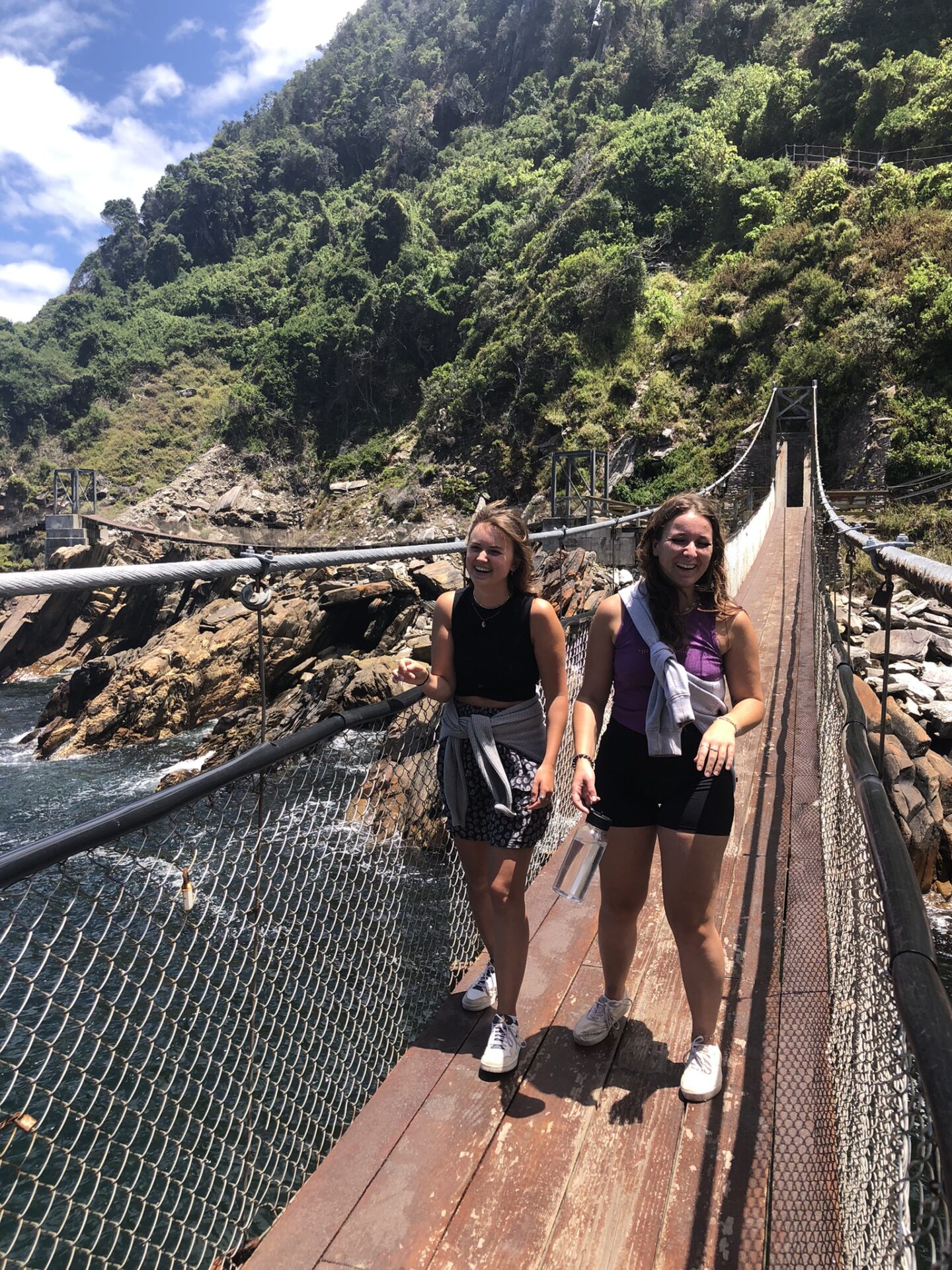
3. Accessibility to reach destination
Do you have any tips to reach your exchange destination?
Take the plane to Cape Town. The university will offer transportation form the airport to your accommodation in Stellenbosch.
4. University and studying
Could you provide some general information about the followed courses?

How is the study formalized?
I would say the academic level of the studies are lower at Stellenbosch University. However, the workload is definitely more. There is a lot of assignments that you have to turn in every week.
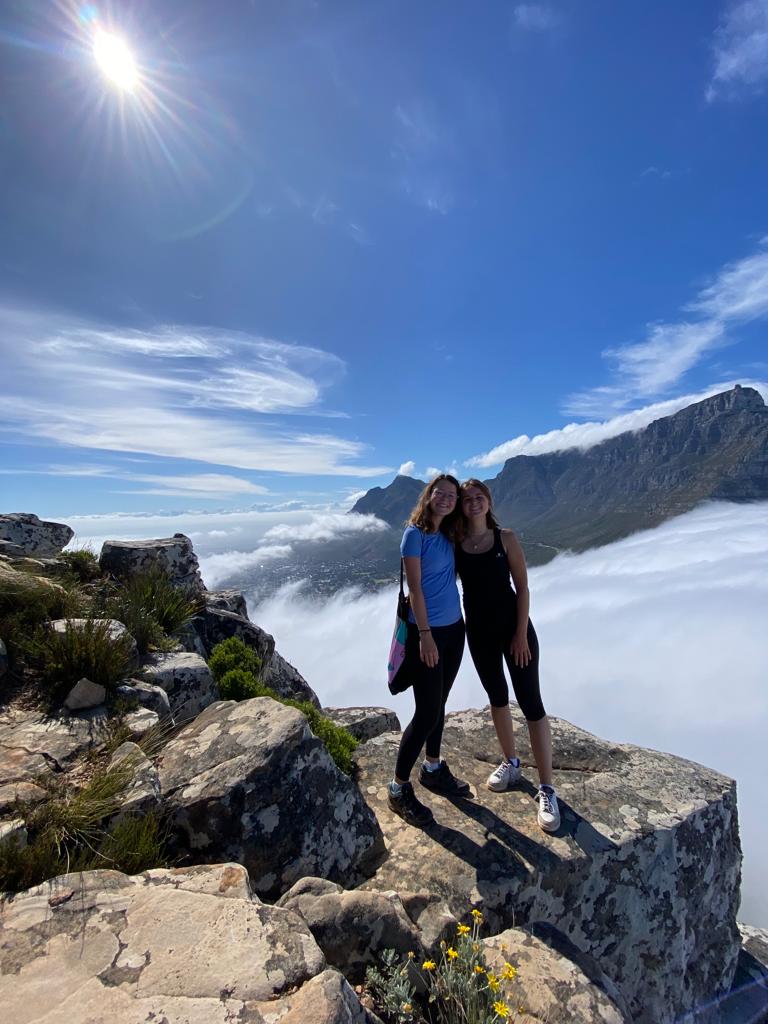
What is the culture of the university?
A lot of the work can be done individually, therefore during the semester you will find less students in the lecture halls unless it is really necessary. Sometimes there would be groupwork where you have to engage with local students, but most of the time the international students and local students are quite separated. This is also because local students have a much more busy study schedule than international students do.
What does the university offer the student additionally?
The university does offer a lot of other student facilities. There is a lot of sport clubs where you can be a member of; yoga, surfing, athletics, hiking. In the Neelsie there are a lot of food spots where you can grab something to eat. In general this is all really cheap (often around €3 for a meal). It is also a great spot to come together with friends and most of the time there is someone playing music.
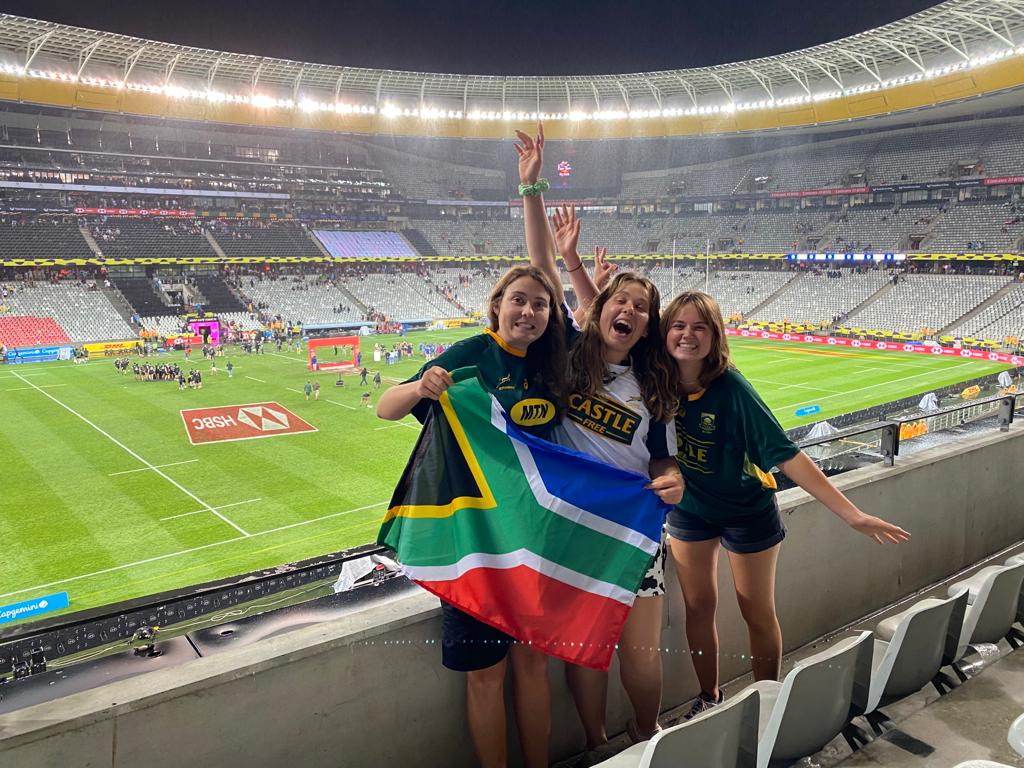
5. Housing-travelling-living
What are the possibilities for housing?
Housing through university is possible (Academia&Concordia). If you start early with searching for a house it will be easy to find something to your likes. The popular student houses are often already fully booked 5 to 6 months in advance so you will have to be early to get a spot in there. These houses (Beachhouse & Bosman house & Banhoek) are the houses were there is a lot of parties going on. A lot of friends have found their accommodation through CampusKey. They offer a lot of different accommodation types, for example de Jordaan. During my exchange I stayed at Oude Posthouse and I did really enjoy my stay there.
What is the culture of the country like?
The culture of the country is very different than the culture in the Netherlands. You must be sure to feel okay stepping outside your comfort zone, because there are a lot of situations where this will be the case. I would suggest to just be openminded to the culture and try to engage as much as possible with the locals. These interactions will bring a valuable experience to your exchange in South Africa, as Stellenbosch can be a huge bubble. South Africans love meat, and they love to braai. However, don’t be scared to be a vegetarian in South Africa, there are a lot of possibilities to eat vegetarian and vegan. When in South Africa you should try the following dishes: koeksister, bobotie, rusks, pap & chakalaka (try in a township), Bunny Chow and the Gatsby. Small talk is a big thing in everyday life as well. In every situation people will ask how you are. This might seem strange at first but after a while you will get used to small talk with strangers.
Could you give a general price indication of the place of residence compared to living in Wageningen?
Between 400 and 600 euros.
Could you give some information about public transport infrastructure?
Transportation goes with Uber, as this is safest. The prices of Uber are affordable. We would travel to Cape Town (40 minutes) for only 7 euros a person. Make sure to take an Uber when it is dark, don’t walk on the streets alone in dark. In Stellenbosch it often is safe, but there still is a lot of homeless people on the street and criminality rates in South Africa stay high. I would not suggest taking the train or the busses, they can be dangerous.
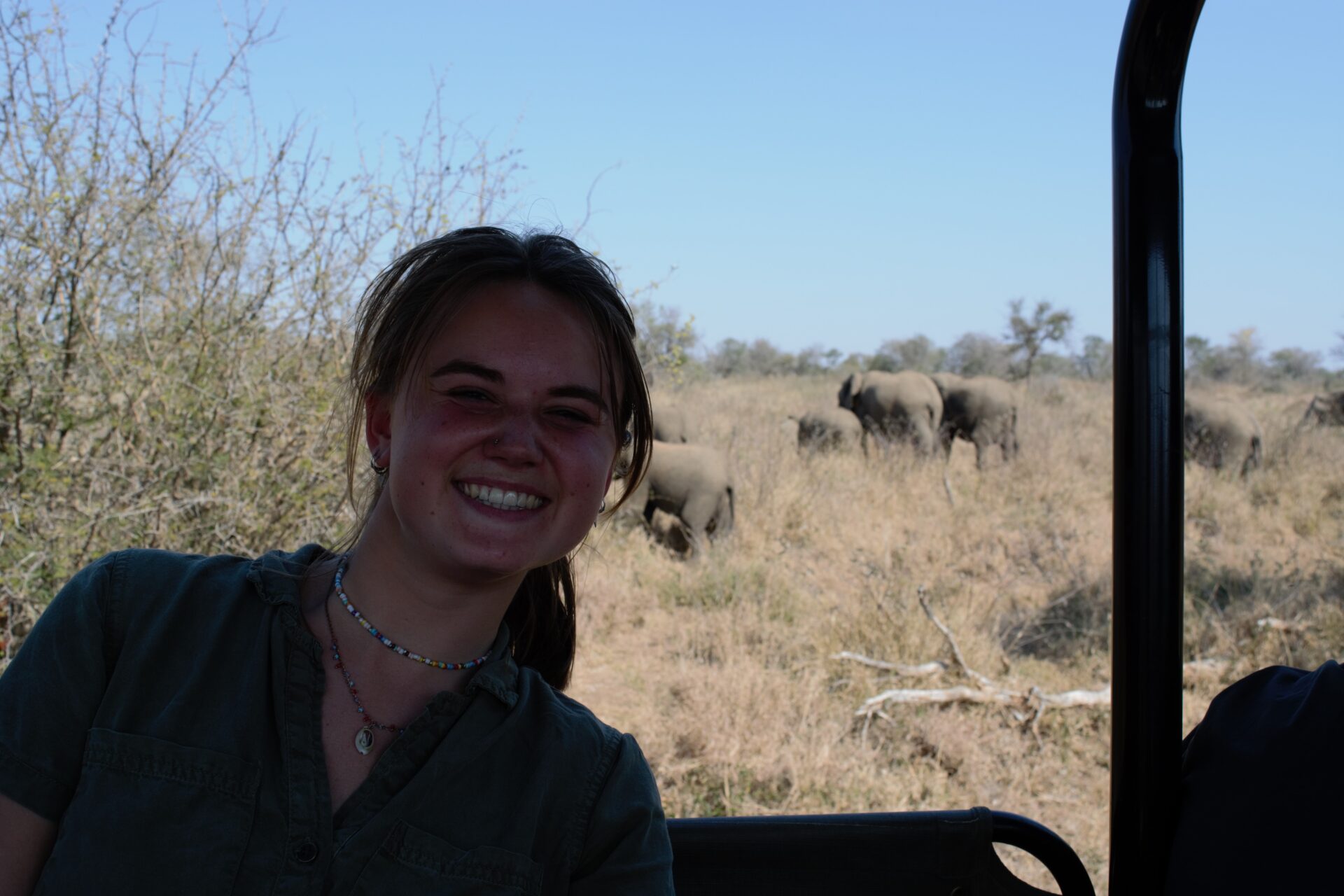
6. Free time
What are must-sees in the area?
In the area of Stellenbosch I would definitely suggest to go to as many wine farms as possible. We often would go every Friday afternoon. Some wine farms I can recommend are Boschendal, Alto, Rainbow’s End and Neethlingshof. There is a lot of hikes possible in the area as well. We hiked Stellenbosch Mountain, Jonkershoek and Helderberg. Strand is only 20 minutes from Stellenbosch and we always went there to surf. Son Surf School is a very chilled and nice surf school where they are very keen to learn you how to catch waves. At the end of the semester you probably have between 1-2 months to travel before you will have to go back. Me and my friend group did a few nice trips. We went through Namibia with a 4×4 car and slept under the most beautiful night skies I have ever seen. Here we did a three day orange river canoe trip as well, where it is only you, your canoe and the nature for three days straight. We saw one of the biggest seal colonies, did safaris in Etosha National Park and did an extreme hike in Spitzkoppe. Namibia is definitely a (hidden) gem and I would recommend taking your time to visit this beautiful country. In South Africa self we did Garden Route, Kruger and a roadtrip through KZN. People often don’t go to KZN but the area is wonderful and a total different part of South Africa that is worth visiting as well. There is amazing scuba diving at Sodwana Bay, cool sunset safari’s to see hippos in St. Lucia and clear blue waters to snorkel in at Kosi Bay.
What does not appear in the travel guide, but is worth a visit?
Rands in Khayelitsha! This was by far one of the best going out experiences I have had in my entire life. Rands is a place in the townships of Khayelitsha where people come together to enjoy some Afrobeat music and drink beers (or Savannah). We went when there was a festival going on and the vibes are amazing. Make sure you go there with a local, as you will probably be a bit of an outsider.
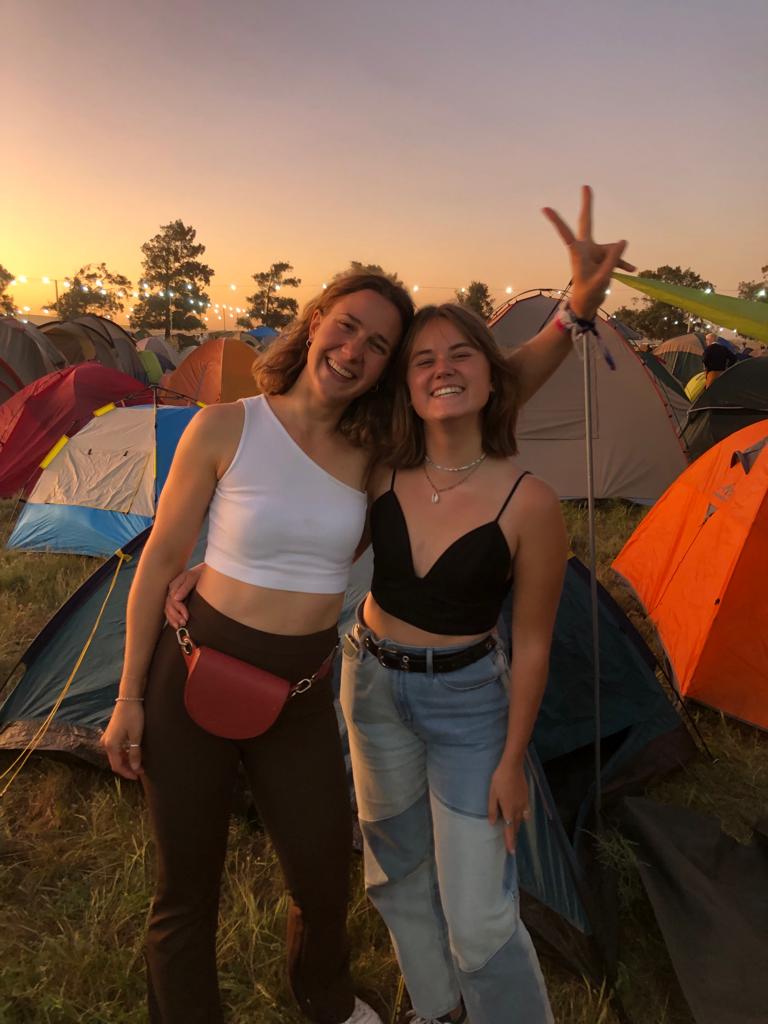
Do you have general tips and tricks about leisure time?
I really enjoyed surfing at Strand. There is a lot of different restaurants in Stellenbosch and they have a lot of different cuisines. For Indian food I would recommend Curry Thyme, for sushi Sushi Box and for a nice and healthy lunch La Coco. As it is relatively cheap to go out for dinner I would just suggest to try out a lot of different restaurants. For going out Cape Town is definitely best, go to Modular if you like techno. In Stellenbosch there is a lot of racial segregation between the bars where you go out and I personally did not like this. There is one bar which is more mixed, named Dorp, and I did enjoy it there.
7. Challenges & best moment abroad
What was a challenge you have experienced?
Safety. In general South Africa is not a very safe place, especially for women. Sometimes we got ourselves in a bit dangerous situations because we forgot about this. Try to ask locals which areas/neighbourhoods are safe to be and which are not, or preferably go with a local. You can always ask Uber drivers what they think or know about a place. They know a lot about the areas and are really willing to give you advice.
What was your best memory abroad?
Every single moment. The kindness of South Africans.
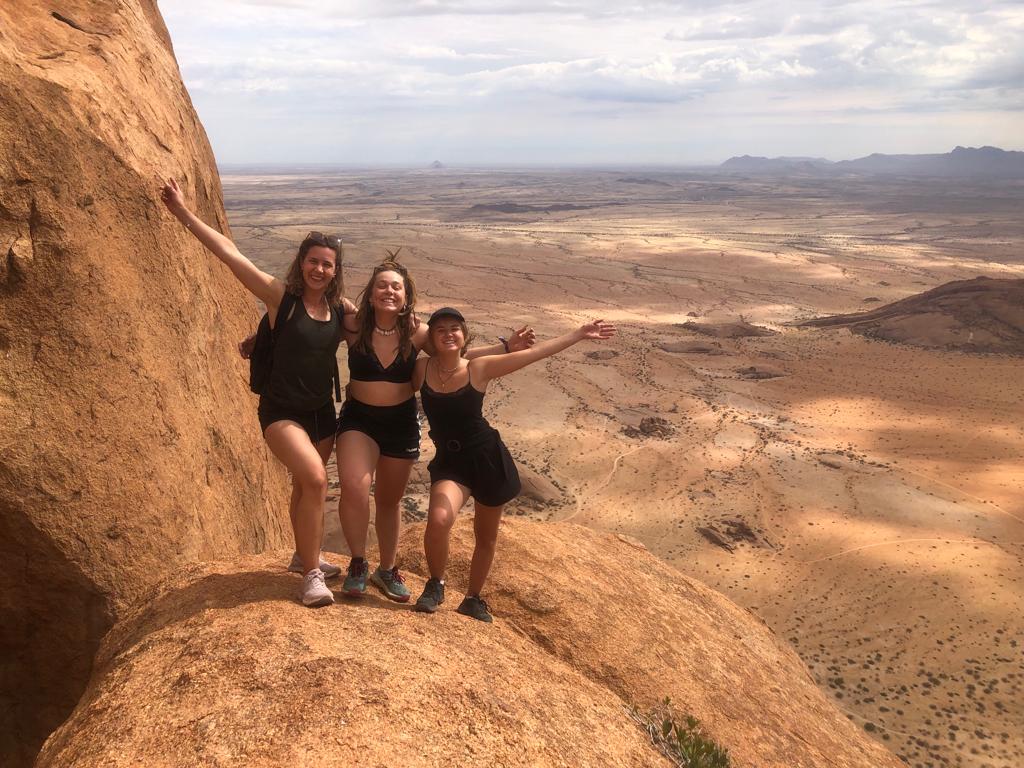
8. Contact Details
Would you like to ask Lieke more questions about her exchange?
Send her a mail: lieke.vaneekelen@wur.nl

